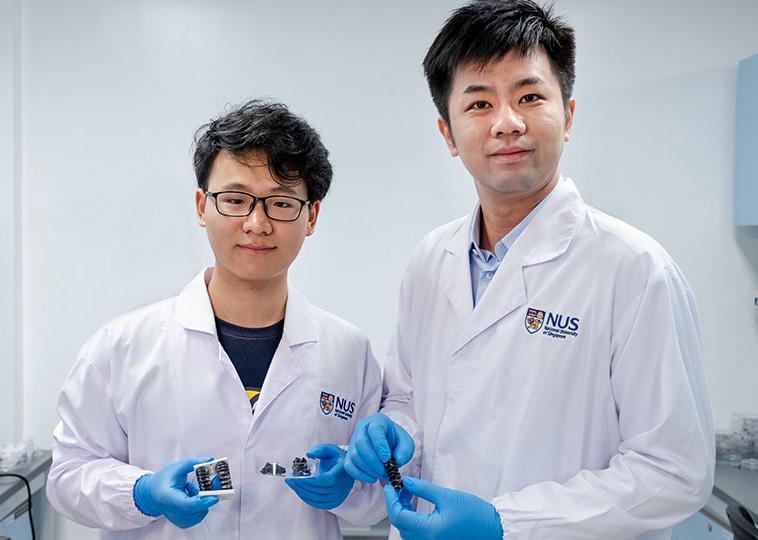
1 minute read
Spin Wave Torque
from Annual Report - 2019
by NUS-CDE
Spin Wave Torque Offers Potential Solution to Overheating Electronic Gadgets
Magnon torque based devices such as this drive the development of faster electronic devices that are less energy demanding and have less overheating issues.
Dr Wang Yi (front), together with Prof Teo Kie Leong, Prof Yang Hyunsoo and Dr Zhu Dapeng (back row from left), have found a way to encode computational information without using electrical current.
Professor Yang Hyunsoo and his research team from NUS Electrical and
Computer Engineering have found a new efficient way to use spin waves (magnon) to switch magnetisation at room temperature. The implication of this finding enables the development of more energyefficient spin memory and logic devices.
Traditional electronic chips suffer from substantial Joule heat caused by rapid motion and frequent collision among moving charges inside devices. This causes a large amount of power dissipation, hinders the chip’s processing speed and limits the number of chips that can be incorporated into appliances. With the new switching scheme based on spin waves – a bilayer system consisting of an antiferromagnetic magnon transport channel and a topological insulator spin source, spin wave driven magnetisation switching in the adjacent ferromagnetic layer can take place at room temperature and with a high efficiency. The results of the study were published on 29 November 2019 in “Science”.
However, noting that the operation frequency of spin waves is in the terhertz range and the potential for terahertz devices to transmit data at significantly higher speeds than currently possible, the research team looks to further engineer the efficiency of magnon torques and explore possibility of magnon devices without involving electrical parts.
“The electrical spin torque opened the era for spintronic device applications such as magnetic random access memories (MRAMs). We believe our report of the new magnon torque scheme for magnetisation switching is a game-changing idea in spintronics. It will invigorate not only a new research area in magnonics, but also practical devices operated by magnons.”
– Prof Yang Hyunsoo, NUS Electrical and Computer Engineering











